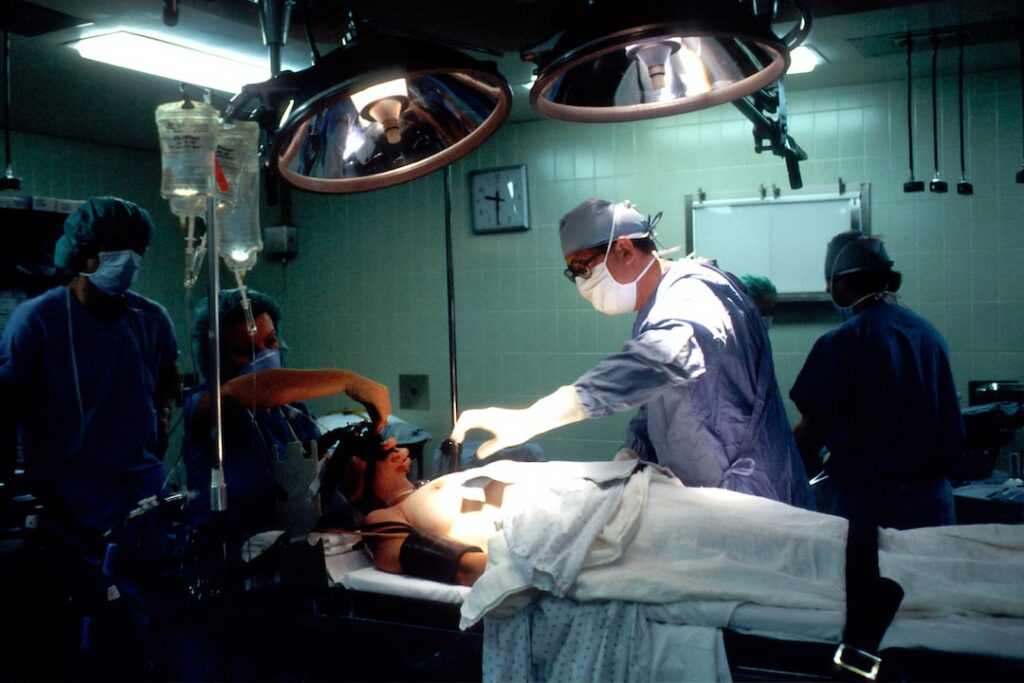Tinnitus is a condition that affects millions of people around the world. It is characterized by the perception of ringing, buzzing, or hissing sounds in the ears, without any external source. This constant noise can have a significant impact on individuals’ lives, causing distress, anxiety, and difficulty concentrating. In this article, we will explore the different aspects of tinnitus, including its causes, symptoms, diagnosis, and treatment options. We will also provide information on finding qualified professionals and support groups in Kuala Terengganu.
Understanding Tinnitus
Tinnitus is often described as a phantom sound that only the person experiencing it can hear. It is not a disease itself but rather a symptom of an underlying condition. The auditory system is responsible for processing sound signals and sending them to the brain for interpretation. When there is damage or dysfunction in this system, it can result in the perception of tinnitus.
There are two main types of tinnitus: subjective and objective. Subjective tinnitus is the most common type and can only be heard by the person experiencing it. It is often caused by damage to the hair cells in the inner ear or problems with the auditory nerves. Objective tinnitus, on the other hand, can be heard by both the person experiencing it and others around them. It is usually caused by a physical problem in the body, such as blood vessel disorders or muscle contractions.
Causes of Tinnitus
Tinnitus can have various causes, and it is often a combination of factors that contribute to its development. One of the most common causes of tinnitus is exposure to loud noise. Prolonged exposure to loud music, machinery, or firearms can damage the delicate hair cells in the inner ear, leading to tinnitus.
Age-related hearing loss is another common cause of tinnitus. As we age, our hearing naturally deteriorates, and this can result in the perception of tinnitus. Other medical conditions, such as ear infections, Meniere’s disease, and temporomandibular joint (TMJ) disorders, can also cause tinnitus.
Common Tinnitus Symptoms
The most common symptom of tinnitus is the perception of ringing, buzzing, or hissing sounds in the ears. These sounds can vary in intensity and pitch and may be constant or intermittent. Some people may also experience a feeling of fullness or pressure in the ears. Tinnitus can be more noticeable in quiet environments or at night when there are fewer external sounds to mask the internal noise.
In addition to the auditory symptoms, tinnitus can also have a significant impact on individuals’ emotional well-being. Many people with tinnitus report feelings of anxiety, depression, and frustration. They may have difficulty concentrating or sleeping, which can further exacerbate their distress.
Diagnosis of Tinnitus
If you suspect you have tinnitus, it is important to seek a proper diagnosis from a qualified professional. An audiologist or an ear, nose, and throat (ENT) specialist can evaluate your symptoms and perform various tests to determine the cause and severity of your tinnitus.
The diagnostic process for tinnitus typically involves a thorough medical history review, a physical examination of the ears, and hearing tests. The hearing tests may include pure-tone audiometry, which measures your ability to hear different frequencies, and speech audiometry, which assesses your ability to understand speech.
Effective Tinnitus Treatment Options

While there is currently no cure for tinnitus, there are several treatment options available that can help manage the symptoms and improve quality of life. The most effective treatment approach will depend on the underlying cause of your tinnitus and the severity of your symptoms.
One common treatment option for tinnitus is sound therapy. This involves using external sounds to mask or distract from the internal noise of tinnitus. White noise machines, sound generators, or even simple background noise can be used to provide relief. Some individuals find that listening to music or nature sounds can also help alleviate their symptoms.
Medication may also be prescribed to manage tinnitus symptoms. Certain medications, such as antidepressants or antianxiety drugs, can help reduce the emotional distress associated with tinnitus. However, it is important to note that medication is not a cure for tinnitus and may only provide temporary relief.
Cognitive-behavioral therapy (CBT) is another treatment option that has shown promise in managing tinnitus. CBT helps individuals change their negative thoughts and behaviors related to tinnitus and develop coping strategies to better manage their symptoms. This therapy can be done individually or in a group setting.
Audiologist Near Me: Finding the Right Professional
When seeking treatment for tinnitus, it is crucial to find a qualified audiologist or ENT specialist who specializes in the diagnosis and management of tinnitus. They should have experience working with individuals with tinnitus and be knowledgeable about the latest treatment options.
To find an audiologist near you, you can start by asking for recommendations from your primary care physician or friends and family who have received treatment for tinnitus. You can also search online directories or contact local hospitals or clinics for referrals.
When choosing an audiologist, it is important to consider their qualifications, experience, and the services they offer. Look for someone who is board-certified and has a good reputation in the field. It may also be helpful to schedule a consultation or interview with the audiologist before committing to treatment to ensure that you feel comfortable with them and their approach.
Hearing Solutions Near Me: What to Look For
In addition to seeking professional help for tinnitus, individuals may benefit from using hearing solutions such as hearing aids or cochlear implants. These devices can help improve hearing and reduce the perception of tinnitus.
Hearing aids are small electronic devices that are worn in or behind the ear. They amplify sounds and can help individuals with hearing loss better understand speech and other sounds. Many modern hearing aids also come with tinnitus masking features, which provide additional relief for individuals with tinnitus.
Cochlear implants, on the other hand, are surgically implanted devices that bypass the damaged parts of the inner ear and directly stimulate the auditory nerve. They are typically used for individuals with severe or profound hearing loss who do not benefit from hearing aids. Cochlear implants can also provide relief from tinnitus by restoring some level of auditory input.
When looking for hearing solutions near you, it is important to consult with a qualified audiologist who can assess your hearing needs and recommend the most appropriate device for your specific situation. They will consider factors such as the severity of your hearing loss, your lifestyle, and your budget when making their recommendations.
Tinnitus Support Groups in Kuala Terengganu
Living with tinnitus can be challenging, but you don’t have to face it alone. Support groups can provide a valuable source of emotional support, information, and coping strategies for individuals with tinnitus. In Kuala Terengganu, there are several support groups available that cater specifically to individuals with tinnitus.
One such support group is the Tinnitus Support Group Malaysia (TSGM). This group aims to create awareness about tinnitus and provide a platform for individuals to share their experiences and learn from one another. They organize regular meetings and events where members can connect with others who understand what they are going through.
Another support group in Kuala Terengganu is the Malaysian Association of Rehabilitation Physicians (MARP). While not specifically focused on tinnitus, MARP provides support and resources for individuals with various disabilities, including hearing loss and tinnitus. They offer counseling services, educational workshops, and social activities to help individuals cope with their conditions.
Living with Tinnitus and Finding Relief
Living with tinnitus can be challenging, but there are treatment options and support available to help individuals manage their symptoms and improve their quality of life. By seeking a proper diagnosis, working with qualified professionals, and connecting with support groups, individuals with tinnitus can find relief and learn to cope with their condition.
If you are experiencing tinnitus, don’t hesitate to reach out for help. Remember that you are not alone, and there are resources available to support you on your journey. With the right treatment and support, you can regain control of your life and find relief from the constant noise of tinnitus.
If you’re looking for the top audiologist in Malaysia to help with your tinnitus treatment in Kuala Terengganu, look no further than HearCare Malaysia. Their team of experts is dedicated to providing the best solutions for hearing-related issues. In fact, they have recently unveiled an article titled “The Sound Solution: Unveiling the Top Audiologist in Malaysia,” which highlights the exceptional services and expertise offered by their audiologists. To learn more about their services and how they can help you with your tinnitus treatment, check out the article here.
FAQs
What is tinnitus?
Tinnitus is a condition where a person hears a ringing, buzzing, or other sounds in their ears or head without any external source of sound.
What causes tinnitus?
Tinnitus can be caused by a variety of factors, including exposure to loud noises, ear infections, certain medications, and underlying health conditions such as high blood pressure or hearing loss.
What are the symptoms of tinnitus?
The main symptom of tinnitus is the perception of sound in the ears or head that is not coming from an external source. This sound can be a ringing, buzzing, hissing, or other noise.
How is tinnitus diagnosed?
Tinnitus is typically diagnosed through a physical exam and hearing tests. In some cases, imaging tests such as an MRI or CT scan may be used to rule out underlying conditions.
What are the treatment options for tinnitus?
Treatment options for tinnitus include sound therapy, cognitive behavioral therapy, and medication. In some cases, treating an underlying health condition may also help alleviate tinnitus symptoms.
What is tinnitus treatment Kuala Terengganu?
Tinnitus treatment Kuala Terengganu refers to the various treatment options available for tinnitus in the city of Kuala Terengganu, Malaysia. These may include sound therapy, counseling, and medication.

